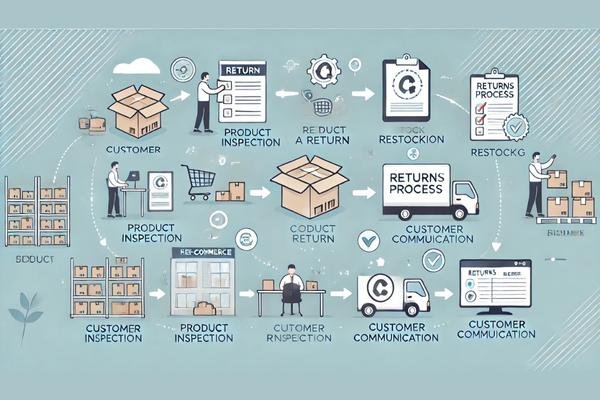
Best E-commerce Platforms with Advanced SEO Features for 2025
October 2, 2024
Best Online Store Platforms with Secure and Easy Payment Solutions
October 2, 2024Starting an online store is one of the most popular ways for entrepreneurs and businesses to expand their reach. In 2025, choosing the right platform is more important than ever, and for many, free and open-source platforms provide the perfect balance between functionality, scalability, and affordability. Whether you’re a digital marketing professional, a developer, or a content creator, it’s essential to select a platform that aligns with your specific business needs.
In this article, we’ll explore the best free online store platforms for 2025 and help you identify the features that make these platforms the right fit for your e-commerce goals.
Table of Contents
1. Why Choose Free E-commerce Platforms?
Free and open-source e-commerce platforms provide flexibility and customization at zero or minimal cost. With access to the platform’s source code, developers have the freedom to modify, customize, and build unique online stores tailored to their specific needs. This contrasts with closed-source solutions, where customizations are limited, and businesses must pay ongoing fees.
1.1 Cost Efficiency
One of the primary reasons businesses opt for open-source solutions is the reduced cost. Unlike paid platforms such as Shopify or BigCommerce, open-source solutions don’t require monthly subscription fees. However, bear in mind that while the software itself may be free, there might be costs for hosting, security, and premium plugins or extensions.
1.2 Flexibility and Customization
Open-source platforms provide almost unlimited customization options, allowing developers to tweak everything from the front-end user interface to the back-end functionalities. This level of control is ideal for businesses looking to create a unique shopping experience.
1.3 Community Support and Continuous Updates
Free and open-source platforms often benefit from large communities of developers and users. This means you can expect regular updates, feature improvements, and extensive community support, ensuring the software evolves with the latest industry trends.
2. Top Free Online Store Platforms for 2025
Let’s dive into the best free and open-source online store platforms for 2024 and explore their features, advantages, and potential drawbacks.
2.1 WooCommerce – The Powerhouse of WordPress E-commerce
WooCommerce is one of the most popular free e-commerce platforms in the world, particularly for those who are already familiar with WordPress. Built as a plugin, WooCommerce turns any WordPress site into a fully functional online store.
Key Features:
- Seamless Integration with WordPress: WooCommerce works effortlessly with WordPress, making it a great option for users already familiar with the platform.
- Customizable Themes: With thousands of themes available, you can design your store to suit any niche or industry.
- Vast Plugin Library: From payment gateways to marketing tools, WooCommerce offers a wide range of plugins for extended functionality.
Pros:
- Easy to set up for WordPress users.
- Highly customizable with plugins and themes.
- Extensive documentation and community support.
Cons:
- Requires some knowledge of WordPress to manage effectively.
- Performance issues may arise with very large stores unless optimized correctly.
2.2 Magento – The Enterprise-Level Option
Magento Open Source is a robust and highly scalable e-commerce platform ideal for businesses with large inventories or complex product catalogs. Magento offers an array of customization options, making it suitable for developers and advanced users who require more control over their store.
Key Features:
- Scalability: Magento is built to handle large volumes of traffic and transactions, making it a top choice for enterprises.
- Advanced SEO: Magento comes with advanced SEO features that make it easier to optimize your store for search engines.
- Customizable Checkout Process: Merchants can customize the checkout process, improving the customer experience and conversion rates.
Pros:
- Built for scalability and performance.
- Comprehensive feature set for advanced e-commerce needs.
- Strong community and developer support.
Cons:
- Steeper learning curve, especially for beginners.
- Requires significant server resources, making hosting more expensive.
2.3 PrestaShop – The Lightweight Yet Powerful Solution
PrestaShop is another popular open-source platform known for its simplicity and lightweight nature. It’s highly customizable and offers over 3,000 modules and themes that allow you to build a professional online store without advanced technical skills.
Key Features:
- Intuitive Interface: PrestaShop has a user-friendly interface that makes managing products and orders easy.
- Customizable with Modules: With thousands of add-ons, PrestaShop can be tailored to suit different business needs.
- Multi-language and Multi-currency: PrestaShop supports international sales, offering features for multiple languages and currencies.
Pros:
- Ideal for small to medium-sized businesses.
- Large selection of modules for added functionality.
- Good balance of features and simplicity.
Cons:
- Limited scalability compared to Magento.
- Requires paid add-ons for advanced features.
2.4 OpenCart – User-Friendly and Lightweight
OpenCart is a lightweight, easy-to-use platform that’s perfect for startups and small businesses. It’s designed with simplicity in mind, allowing users to set up an online store quickly without a steep learning curve.
Key Features:
- Built-in Extensions Marketplace: OpenCart offers a large marketplace with thousands of extensions for payment gateways, shipping methods, and more.
- Multi-store Functionality: OpenCart allows you to manage multiple stores from a single admin interface.
- Affordable Themes and Extensions: Compared to other platforms, OpenCart offers budget-friendly extensions and themes.
Pros:
- Simple setup and user-friendly interface.
- Free core software with affordable extensions.
- Multi-store support is perfect for businesses with multiple brands.
Cons:
- May require additional extensions for essential features.
- Limited scalability for very large businesses.
2.5 Drupal Commerce – The Developer’s Choice
Drupal Commerce is a robust e-commerce solution built on the Drupal content management system. It is highly flexible and allows for extensive customization, making it a popular choice among developers who need full control over their e-commerce site.
Key Features:
- Built on Drupal: Leverages the power of the Drupal CMS for content-heavy websites that also need e-commerce functionality.
- Extremely Customizable: Drupal Commerce allows you to customize every aspect of your online store, from product catalogs to checkout workflows.
- Secure and Scalable: Known for its security, Drupal Commerce is ideal for businesses dealing with sensitive data and large inventories.
Pros:
- Ideal for content-driven e-commerce sites.
- Extremely flexible and customizable.
- Strong focus on security and scalability.
Cons:
- Requires development expertise.
- Less beginner-friendly compared to WooCommerce and PrestaShop.
2.6 Bagisto – Emerging Laravel-Based Platform
Bagisto is an open-source e-commerce platform built on the Laravel framework. It’s gaining popularity among developers for its flexibility, scalability, and user-friendly admin interface. Bagisto is designed to simplify the process of building complex e-commerce applications.
Key Features:
- Laravel Framework: Built on the popular Laravel PHP framework, Bagisto is developer-friendly and offers extensive customization.
- Multi-channel: Supports multiple sales channels, allowing merchants to sell across different platforms.
- Inventory Management: Bagisto comes with advanced inventory management tools out of the box.
Pros:
- Excellent for developers familiar with Laravel.
- Free and open-source with great scalability options.
- Regular updates and strong community support.
Cons:
- Limited number of extensions compared to more established platforms.
- Requires development knowledge to set up and maintain.
Best Free Online Store Platforms for 2025 Comparaison
Best Free Online Store Platforms for 2025
| Platform | Key Features | Best For | Link |
|---|---|---|---|
| WooCommerce |
– Seamless WordPress integration – Thousands of plugins and themes – Vast community support | Small to medium-sized businesses and WordPress users | Visit WooCommerce |
| Magento |
– Built for scalability and large inventories – Advanced SEO and customizable checkout – Strong community and developer support | Enterprises and businesses with large inventories | Visit Magento |
| PrestaShop |
– Lightweight and user-friendly – Multi-language and multi-currency support – Affordable modules for customization | Small to medium-sized businesses | Visit PrestaShop |
| OpenCart |
– Simple setup and multi-store functionality – Large marketplace for extensions – Affordable themes and plugins | Startups and small businesses | Visit OpenCart |
| Drupal Commerce |
– Leverages Drupal’s CMS capabilities – Extremely customizable and secure – Ideal for content-driven e-commerce | Developers and businesses with complex needs | Visit Drupal Commerce |
| Bagisto |
– Built on the Laravel framework – Multi-channel selling support – Advanced inventory management | Developers familiar with Laravel | Visit Bagisto |
3. Frequently Asked Questions
1. What is the best free online store platform for beginners?
For beginners, WooCommerce is the top choice due to its ease of integration with WordPress and the large number of free resources available for setup and customization.
2. Can I use free e-commerce platforms for large businesses?
Yes, platforms like Magento Open Source and Drupal Commerce offer powerful features and scalability for large enterprises, but they may require more technical expertise and higher hosting costs.
3. Do free and open-source e-commerce platforms offer good security?
Yes, many open-source platforms like Drupal Commerce and Magento prioritize security. However, security depends on how well the platform is maintained, so it’s crucial to keep your software, themes, and plugins up to date.
Conclusion
Choosing the right free and open-source online store platform for your business is crucial for your e-commerce success. Each platform has its strengths and weaknesses, but whether you’re looking for simplicity, flexibility, or scalability, there’s an option out there that suits your business needs. Platforms like WooCommerce and PrestaShop cater to small businesses and those new to e-commerce, while Magento and Drupal Commerce are designed for more complex operations.
As you evaluate which platform is right for you, consider your current business needs, growth expectations, and technical expertise. With the flexibility and cost-effectiveness that open-source platforms offer, 2024 is the perfect time to take advantage of these powerful tools to build or expand your online store.








